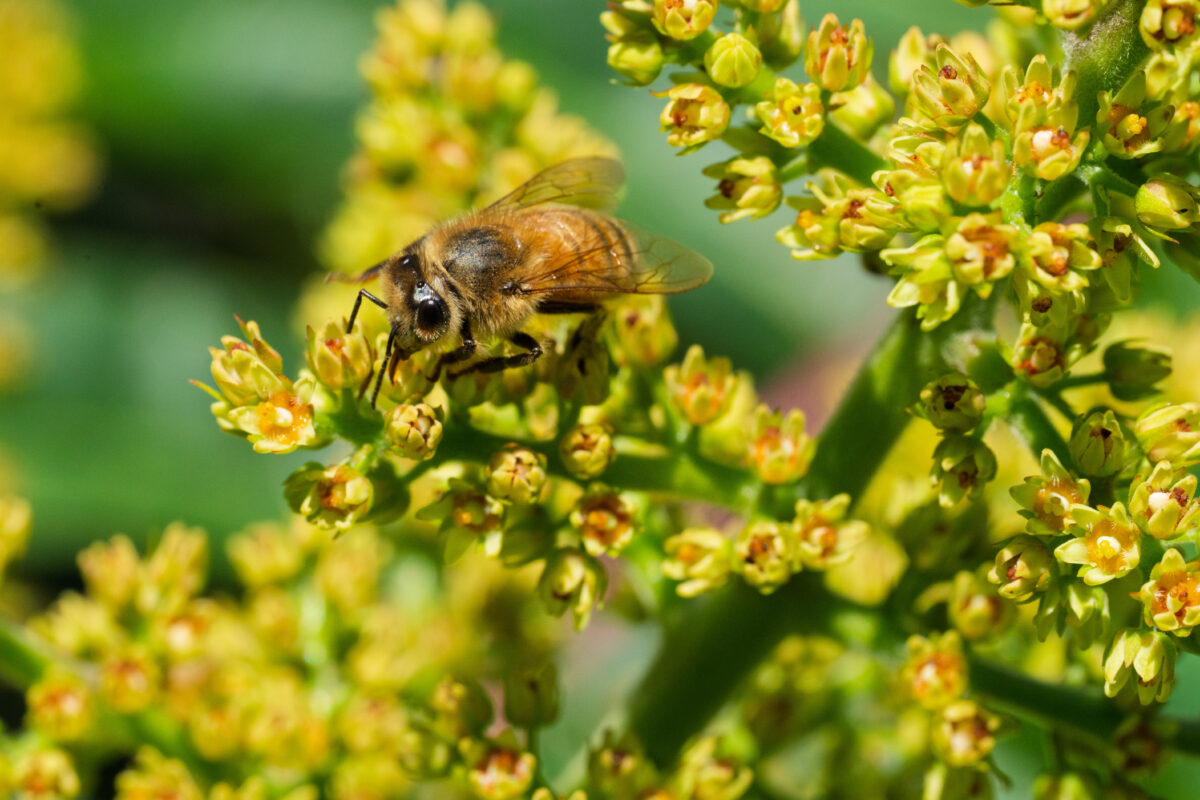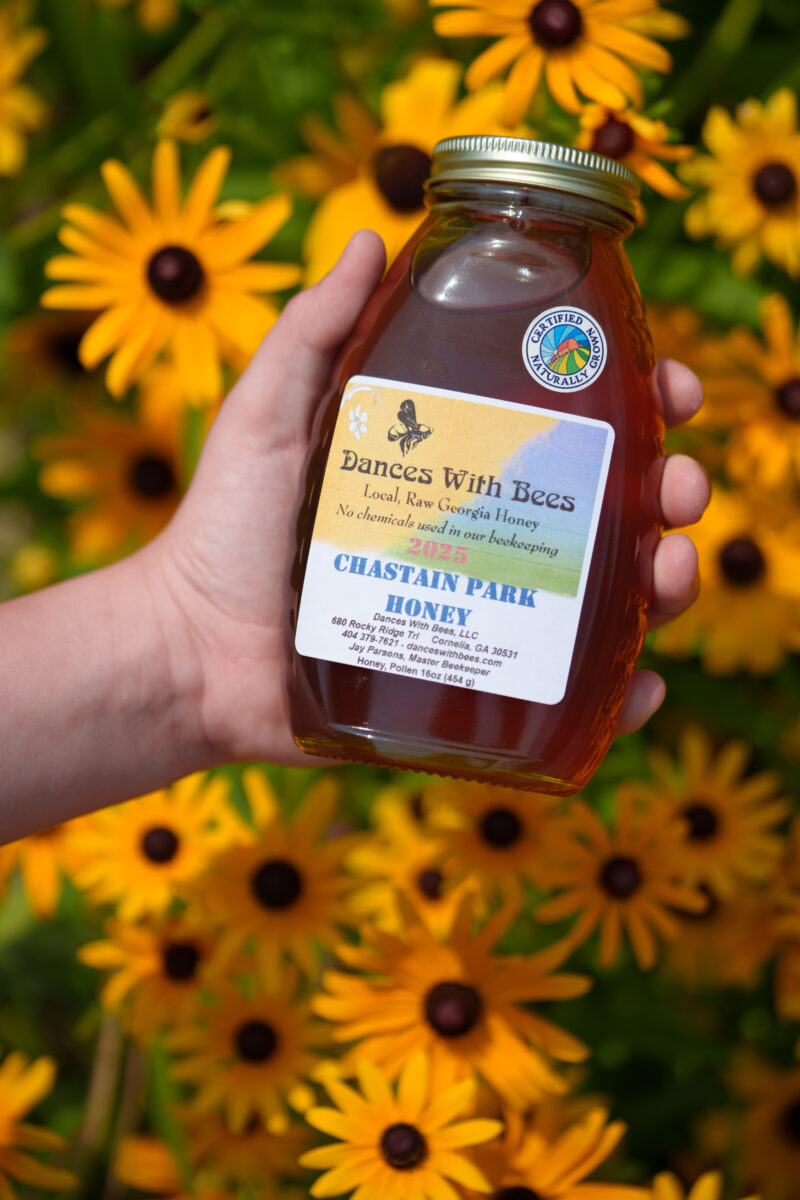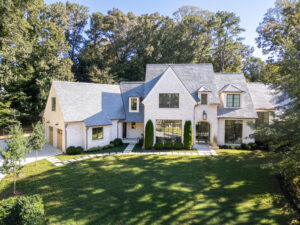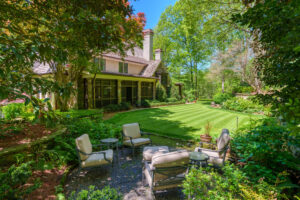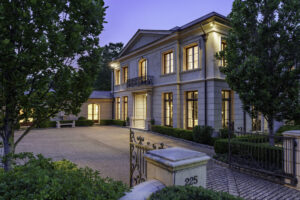In the shadows of Buckhead’s gleaming towers filled with worker bees, an actual army of bees is at work. Over 100 species call Atlanta home, playing a crucial role in sustaining its diverse ecosystem. These diverse pollinators work behind the scenes to help keep Buckhead lush and make it one of the most beautiful neighborhoods in Atlanta.
As many know now thanks to a huge push from the Save the Bees Foundation, a national non-profit aimed at bee education, the importance of bees extends beyond honey production. “Bees are one of the key indicators of the health of everything around them,” says Denise Starling, executive director of Livable Buckhead. Bees serve as both environmental barometers and essential contributors to the city’s biodiversity and are supported via various entities, from the pollinator gardens at Little Nancy Creek Park to the managed hives at Farm Chastain. When bees are thriving, it suggests that the surrounding areas include a good mix of clean water, flowering plants, and minimal exposure to pesticides.
Many may not know, though, that Buckhead’s urban landscape is a tale of two bees: the familiar honey bee, known for its golden nectar, and the myriad wild bees that call Buckhead home, such as carpenter bees, bumble bees, mason bees, leafcutter bees, and sweat bees, just to name a few.
Bees that belong
Native bees are a focus of recent conservation efforts nationally, regionally, and locally. “The cool thing about native bees is that they evolve with local plants,” says Julia Mahood, a Master Crafts Beekeeper and President of the Georgia Beekeepers Association. This co-evolution has resulted in specializations, like the southeastern blueberry bee’s ability to perform a type of pollination where they shake loose pollen that honeybees can’t get to.
However, Atlanta’s native bees face a precarious existence. Habitat loss, pesticide use, and competition from managed honey bee colonies are putting immense pressure on native bee populations. Brian Barnes, Director of Operations and Volunteer Programs for the Chastain Conservancy, says that part of its mission is to plant native plants to attract more native wild bees to protect them and help them flourish.

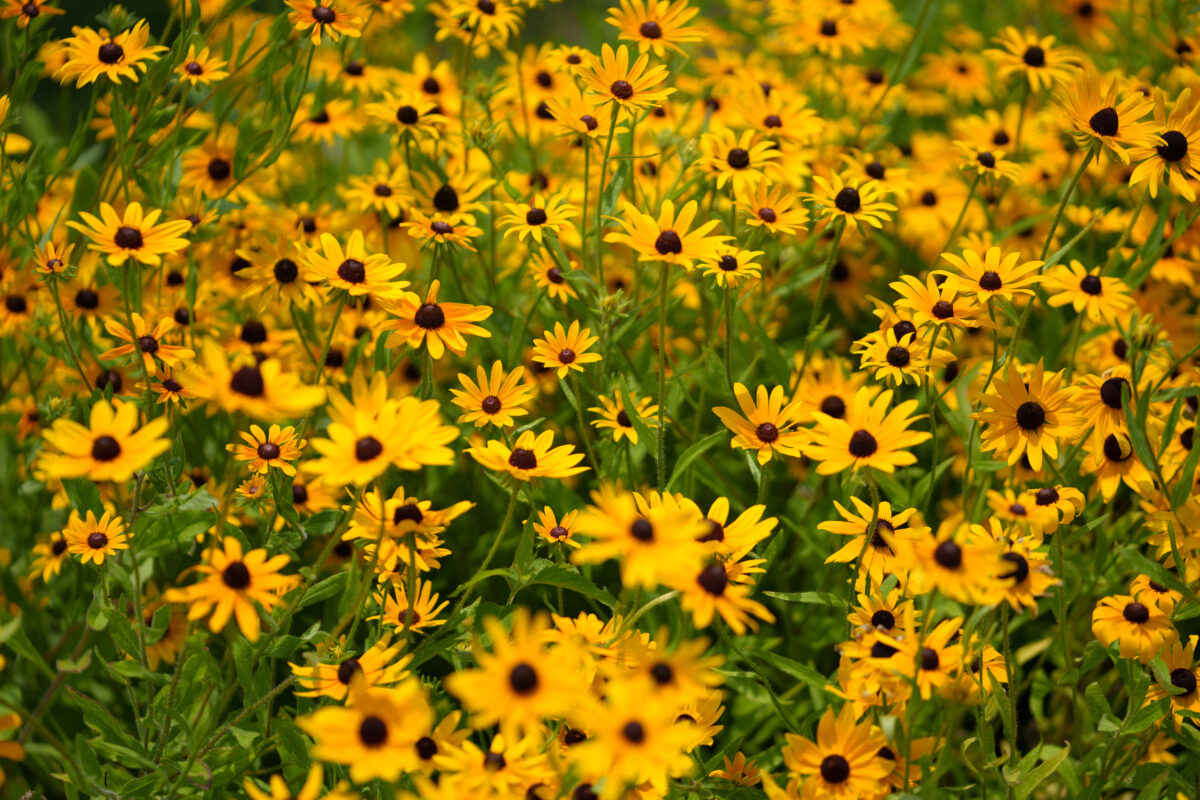
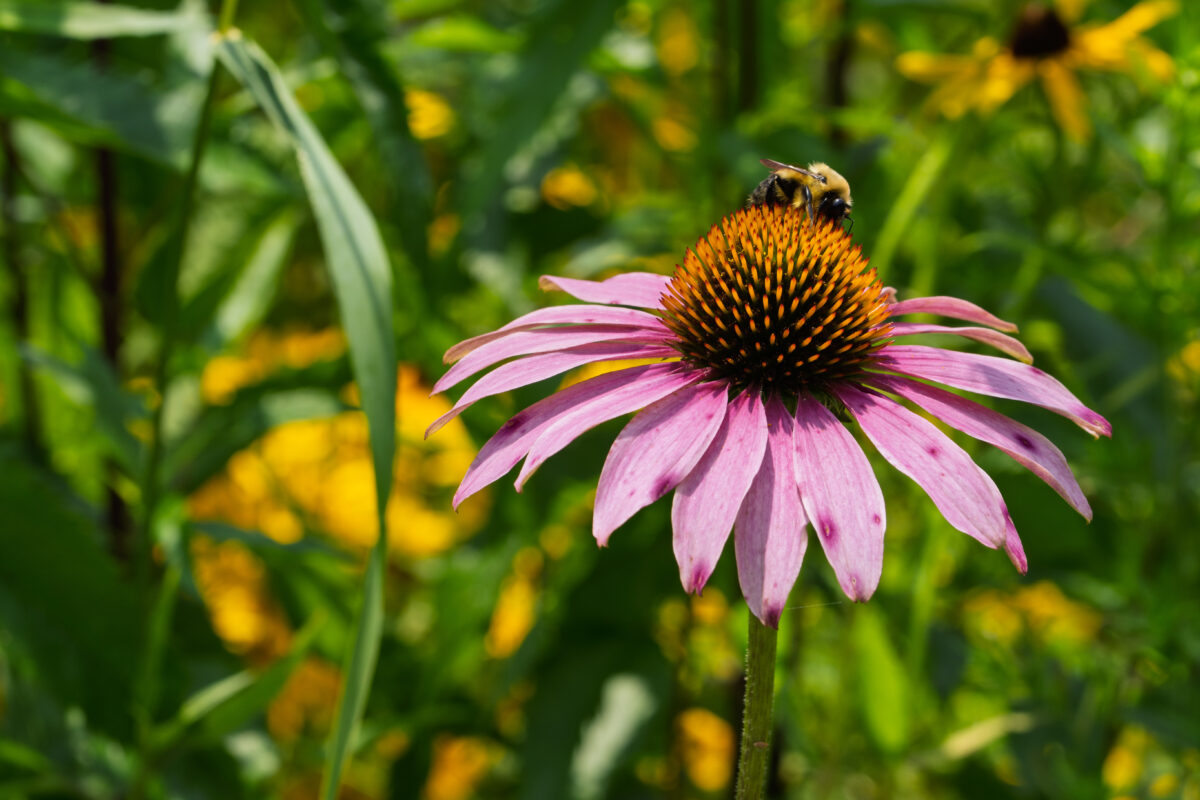
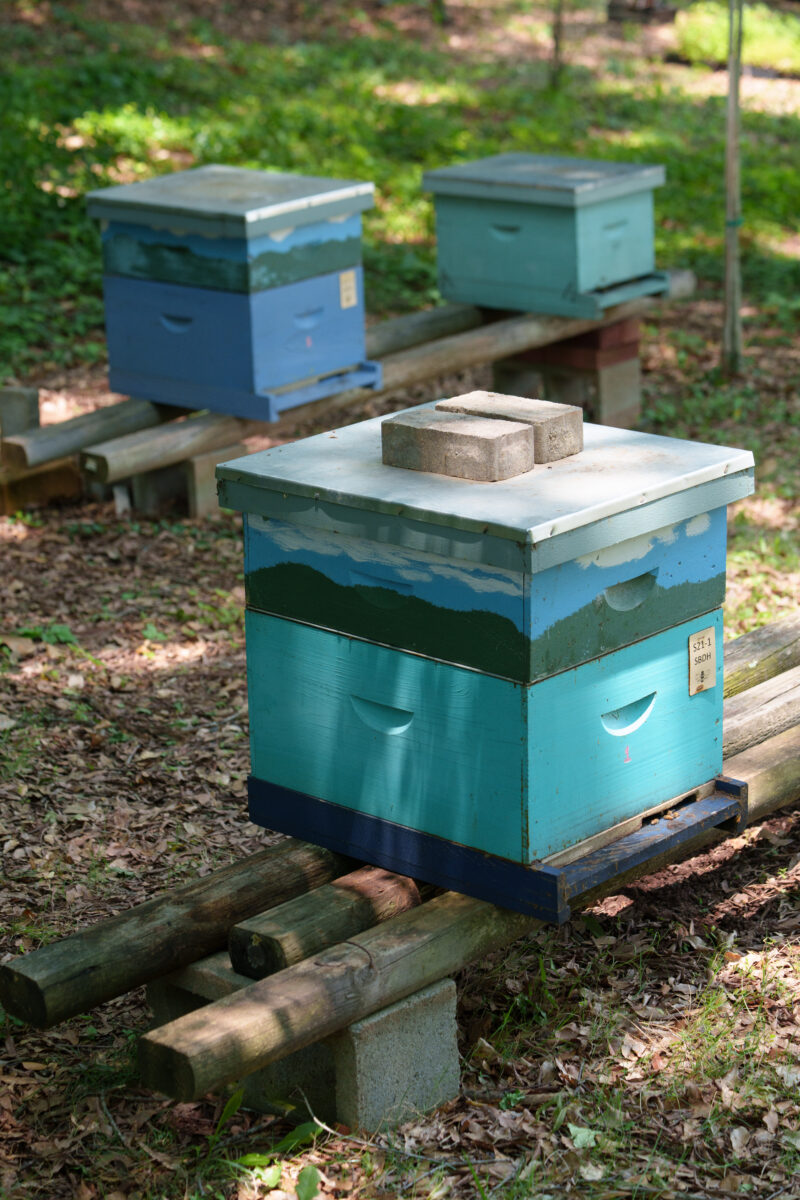
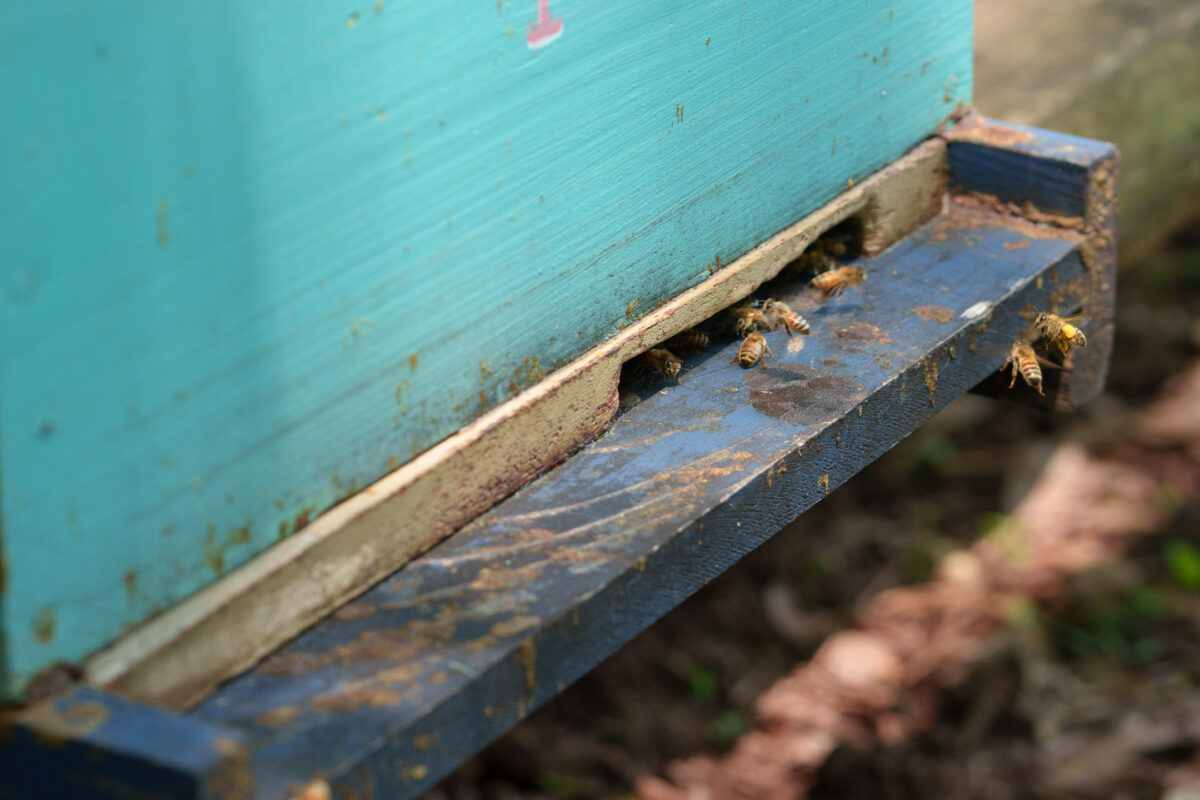
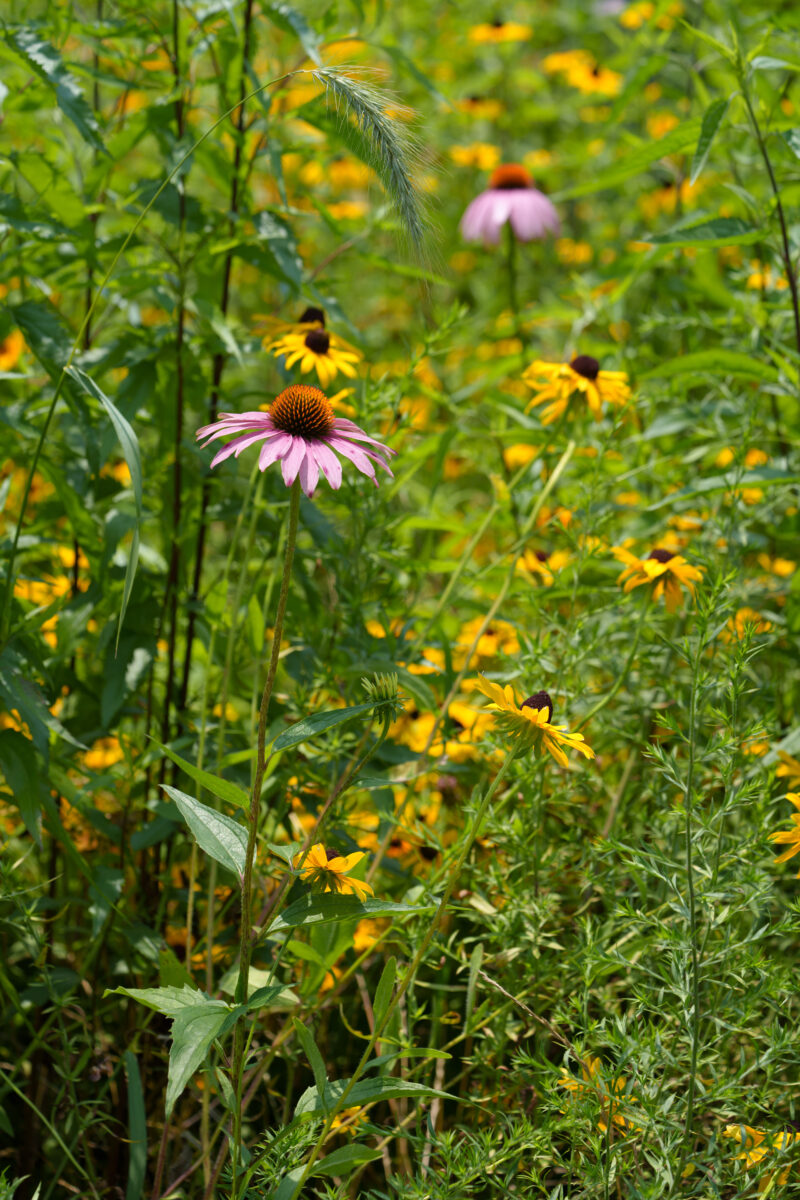
“We’re doing a lot of wildlife habitat restoration around the park, planting native plants to support native wildlife and insects,” he explains. This focus on native species reflects a growing understanding of the delicate balance required to keep the current ecosystem going. The Conservancy does this and maintains anywhere from six to twenty honey bee hives at Farm Chastain. While they are committed to maintaining the honey bees they have on the property and use them as an educational resource, Barnes says the wild bees need the most attention.
Honey bees have become somewhat of a pollination problem. They have hearty appetites for pollen, regardless of the plant. “They typically pollinate plants they’ve co-evolved with, which in this case, are invasive,” he explains.
While Buckhead looks fabulous, the plant variety isn’t exactly what native bees need to survive. The beautiful trees and plants that are a signature of life in Atlanta are supercharged, thanks to the fastidiousness of honey bees. However, efforts like those at Chastain Conservancy can make an enormous difference in supporting native bees and native plant populations despite the flourishing of non-native plants. “We are growing approximately 60 species of native plants at the farm that all attract or benefit native bees in some way. We use these to plant in the park,” Barnes says.
Honey habitats
While native bees try to regain their foothold in an urban setting, honey bees are still an instrumental part of life in Buckhead. Garden 684 at Mountain Way Common stands as a testament to the growing interest in urban beekeeping and as a useful tool in educating people on the importance of bees in general. Owned by Livable Buckhead and managed by residents and volunteers, this honey bee oasis hosts hives that serve both educational and ecological purposes. Says Helen Petersen, the sustainability director of Livable Buckhead, “Even though honey bees aren’t native, their presence, especially in a public green space like Garden 684, sparks curiosity and encourages community members to think about pollinators, conservation, and the role we all play in nurturing a healthy environment.”
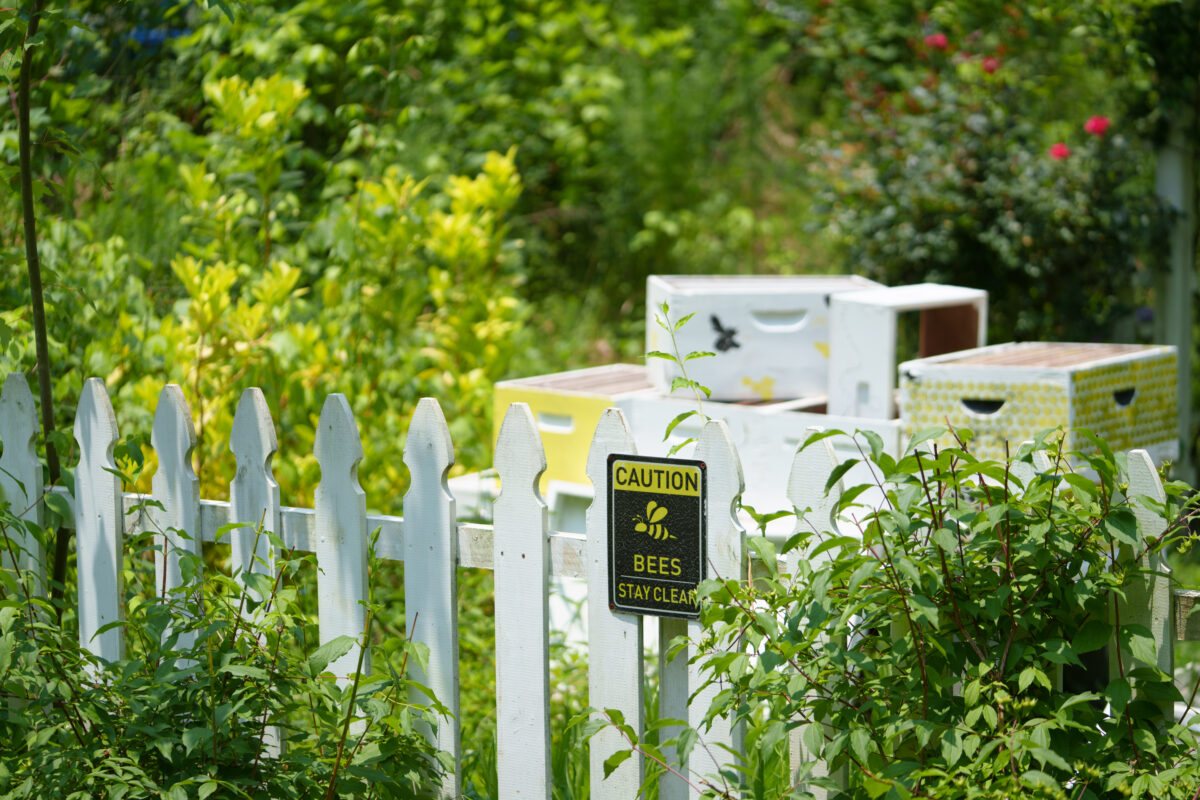
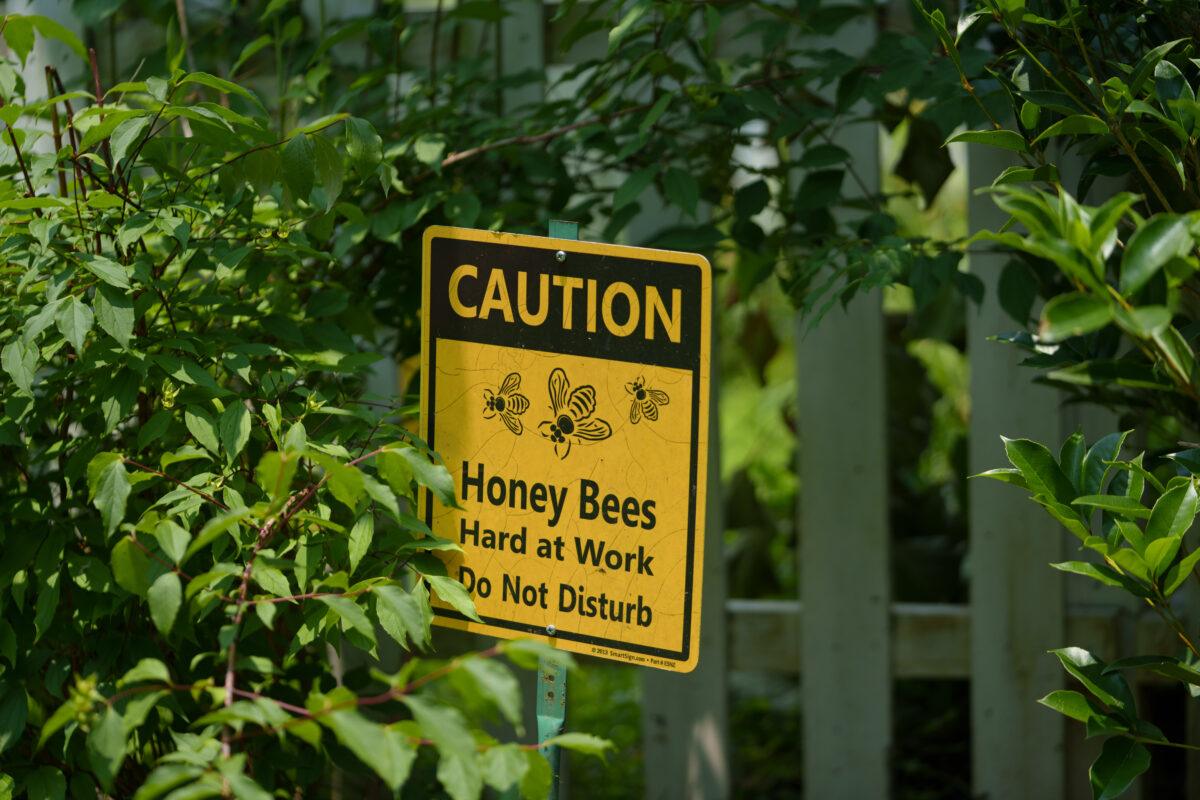
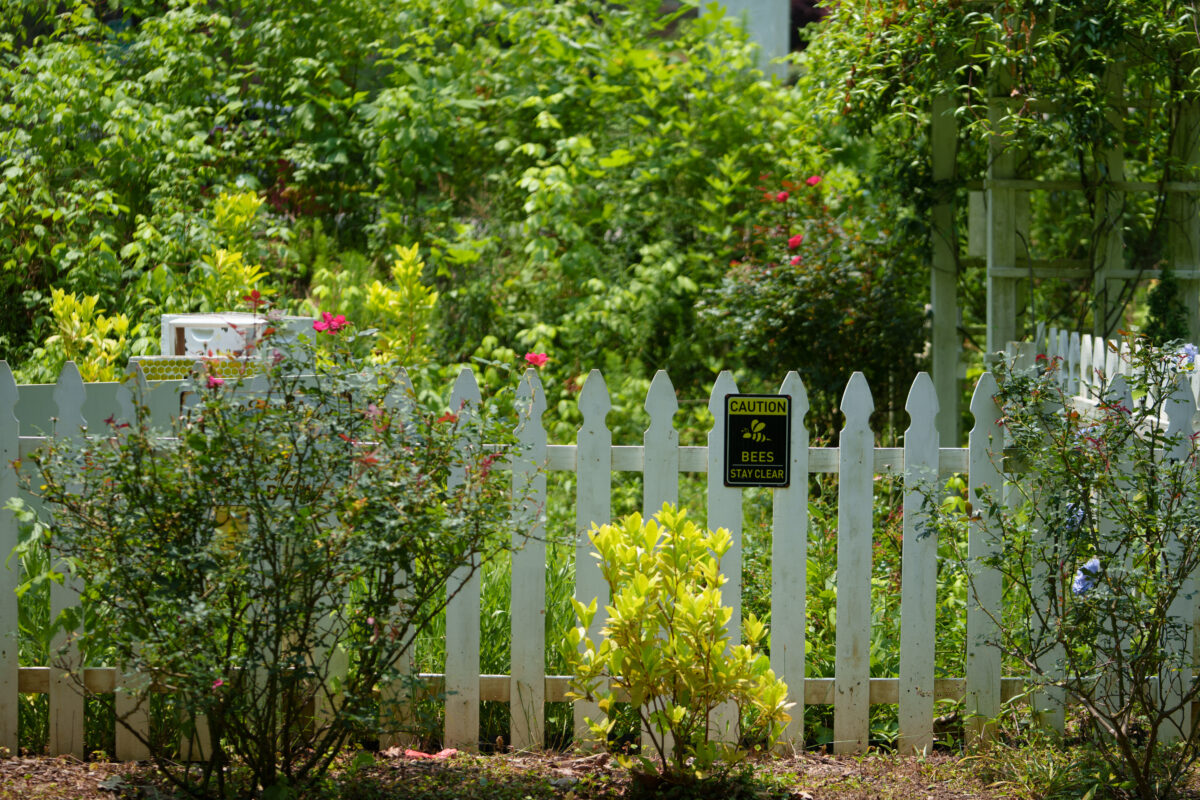
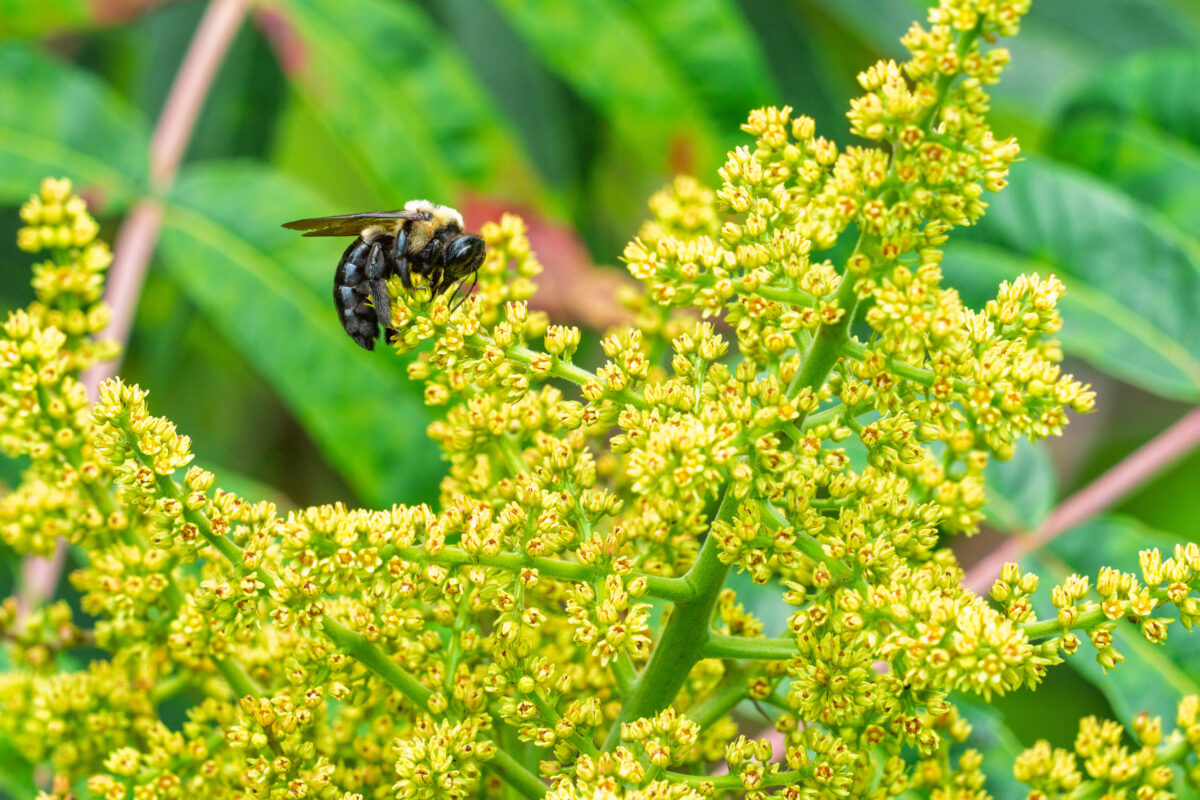
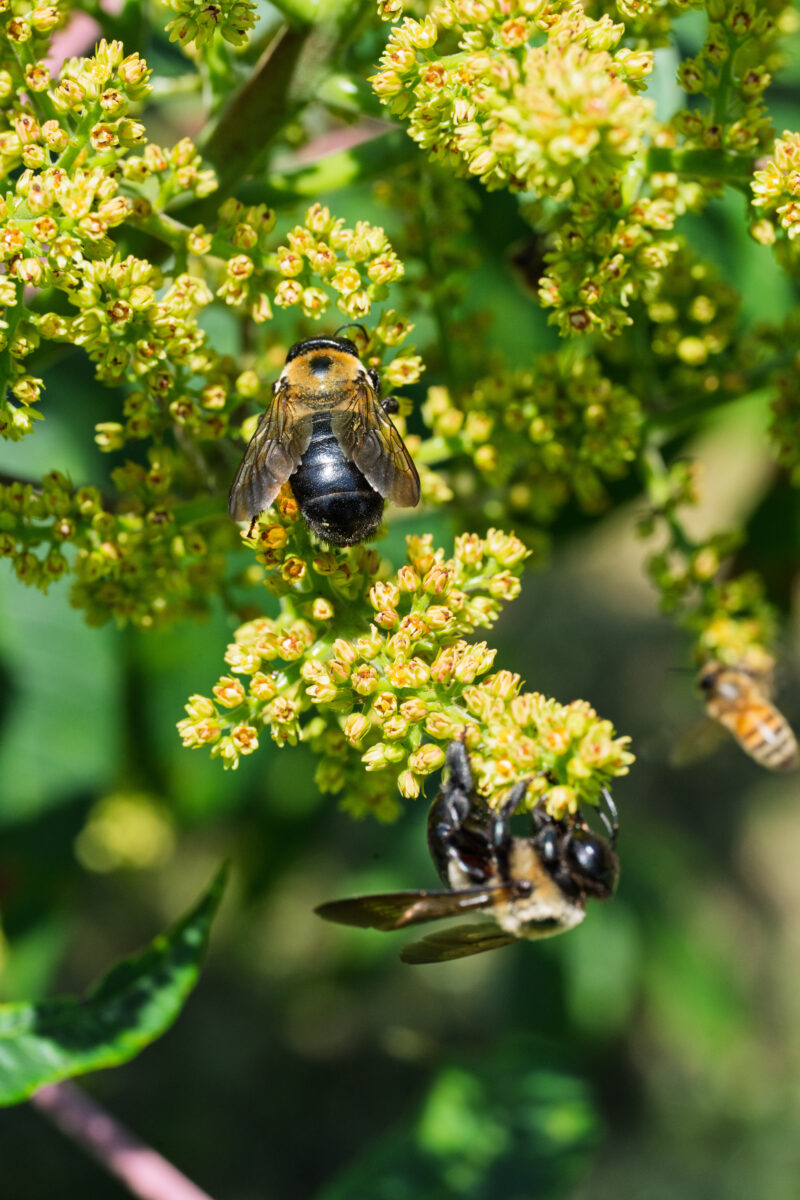
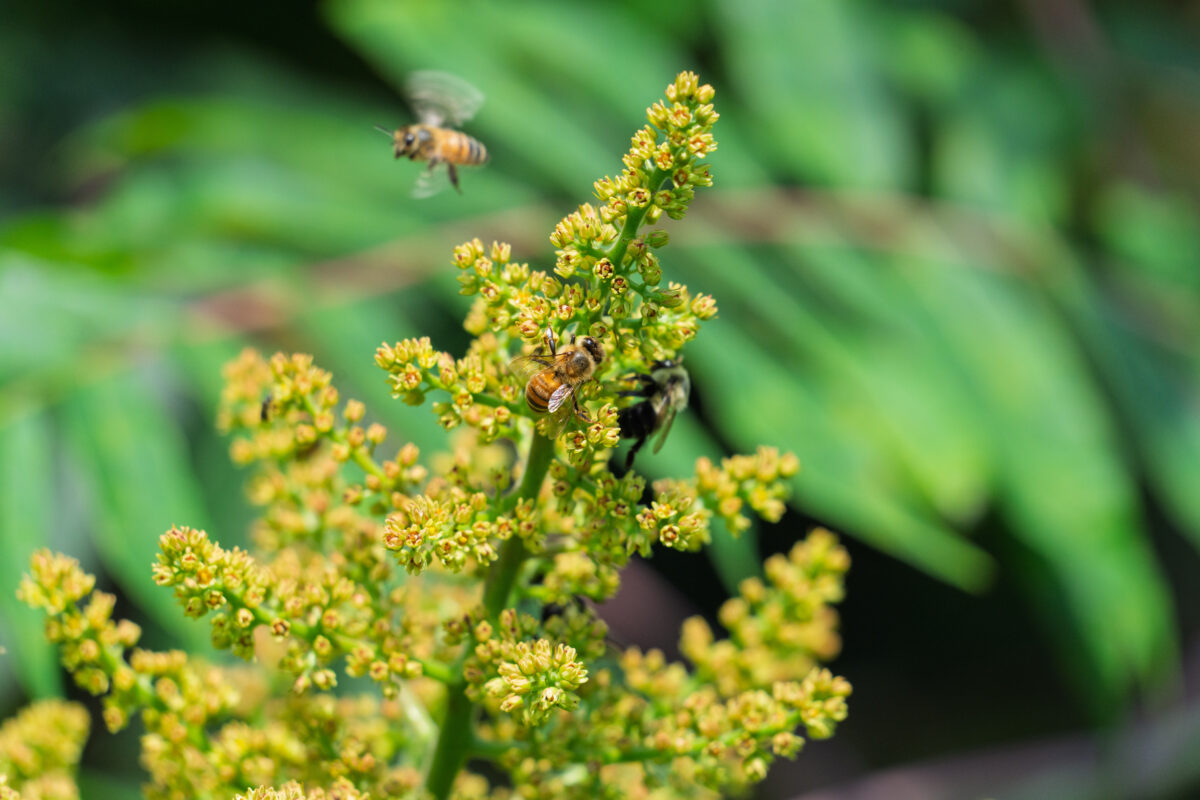
Honey bees face challenges, too, including environmental ones just like native bees. Additionally, they can be somewhat of a mysterious species. “Keeping honey bees isn’t as easy as one might think,” says Starling. Challenges such as pesticide exposure and mite infestations plague hives around town and Garden 684’s bees have even disappeared on a whim. “We’ve had them abscond,” says Starling. “They’ve just taken off.”
Protecting pollinators
Regardless of the species, one of the biggest threats to Buckhead’s bees is incorrect pesticide use. Mahood says it’s the mosquito-spraying foggers in particular that are most detrimental. “They kill everything that flies,” she says. Individual bees die, but the pesticides can contaminate the entire colony when bees carry the chemicals back home.
Despite the challenges, there is hope for Buckhead’s tiniest residents as passionate bee advocates work behind the scenes to populate native bees and educate Atlantans on the importance of bees in general.
Pollinator gardens like those found at Garden 684 and Blue Heron Nature Preserve help attract wild bees, as do larger programs like Chastain Conservancy’s. Chastain Conservancy will host the University of Georgia pollinator census at one of its larger gardens in August to help count bees and other pollinators to better understand them and their behavior. Urban planners can help by planting more pollinator-specific landscaping and diversity in plantings. For example, Garden 684 has native blackberries, mint, red maples, and frost aster.
Homeowners can make a difference by planting native plants. Mahood suggests coneflowers, goldenrod, and bee palm. She hopes hobbyist beekeepers will understand the challenges bees face, adapt to them, and reap the benefits of what they plant while supporting bees as a building block of a good ecosystem. “Because Atlanta has so many rich sources of nectar, the honey is incredibly delicious,” she says. “You can taste the flowers; it’s very floral and has a lovely flavor.”

